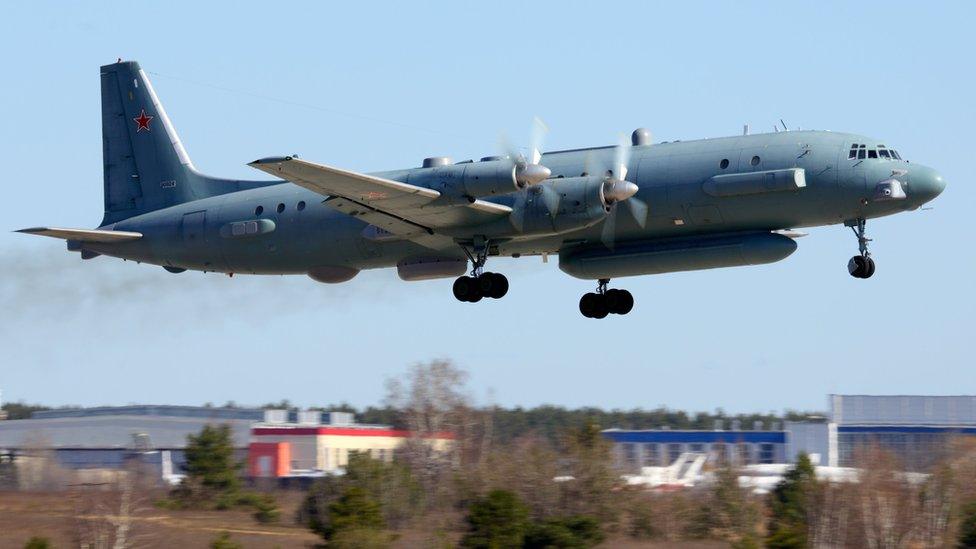Is Russia taking control of Syria's air defences?
- Published
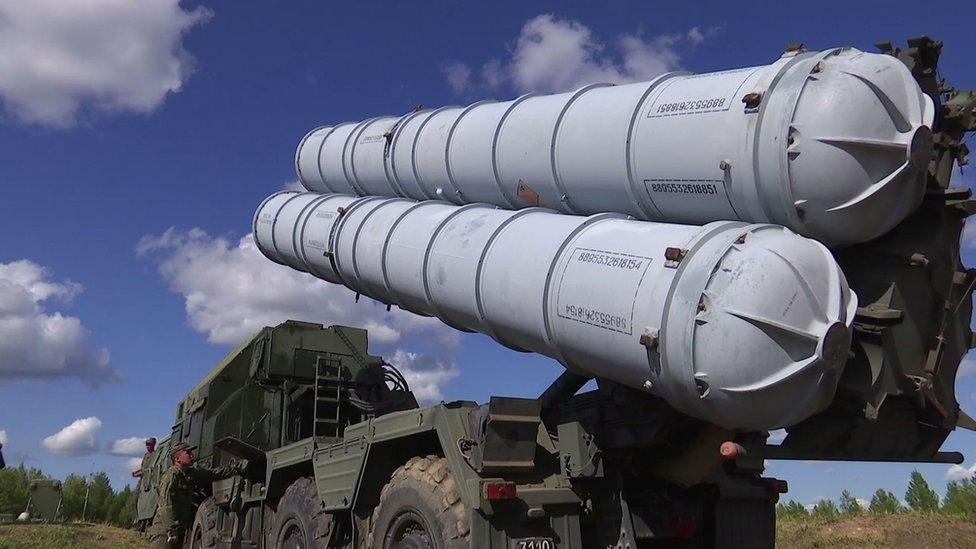
Russia said the S-300 system would "significantly increase the Syrian army's capabilities"
Russia has been talking about selling the S-300 surface-to-air missile system to Syria for almost a decade.
But it was never delivered; a product of Israeli diplomatic efforts and a certain indifference from Moscow towards Israel's air campaign over Syria.
Now, though, Russia seems to be signalling that its "neutrality" is over and that Israel's air operations are seen as running counter to its strategic interests.
Back in 2011 news reports suggested that Moscow was planning to sell up to four batteries of the export version of the S-300 to Syria.
Each battery consists of up to six launcher vehicles, along with separate surveillance and engagement radars and a command post.
It is a mobile and highly capable system but does not necessarily represent a step-change in Syria's capabilities. Syria can already strike targets within the S-300's envelope with its existing systems.
Nonetheless, once integrated with other missile batteries and radars, Syria's capabilities would certainly be enhanced.
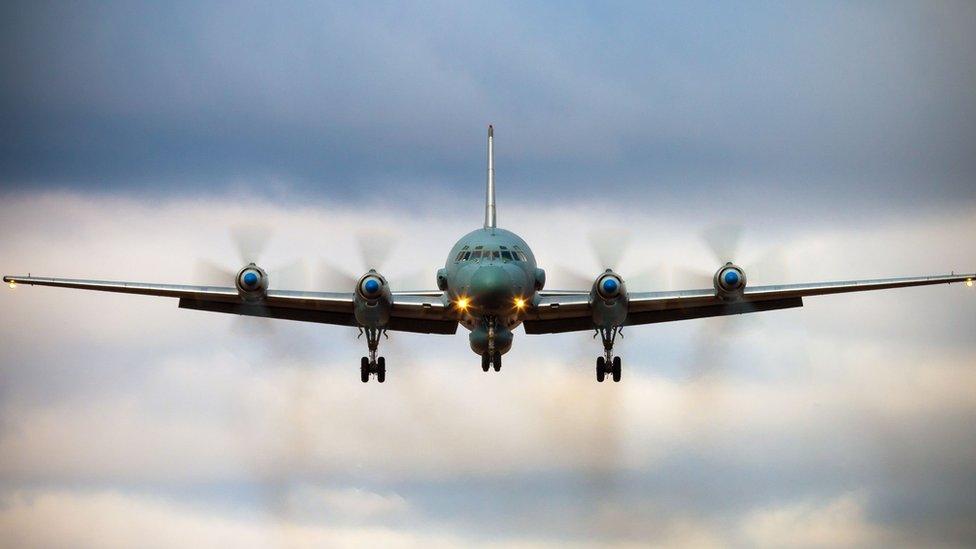
The S-300 sale was announced a week after a Russian plane was shot down off Syria
As well as delivering the S-300 system, Moscow plans to equip Syrian air defence command posts with automated systems to ensure, in the words of Russian Defence Minister Sergei Shoigu, "centralised control over all of Syria's air defence facilities and capabilities, the monitoring of airspace and prompt targeting".
In addition, he said "the identification of all Russian aircraft by Syrian air defences will be guaranteed".
This is in effect an admission that there were serious shortcomings in the existing system when a Russian Ilyushin Il-20 electronic intelligence gathering aircraft was accidentally shot down a week ago by Syrian air defence forces responding to an Israeli air strike on the city of Latakia.

Where the Il-20 incident happened
Russia appears to be asserting greater control over Syria's air defences. But it remains to be seen whether it will actively try to constrain Israeli operations.
Mr Shoigu also stated that "in parts of the Mediterranean adjacent to Syria, there will be radio-electronic jamming of satellite navigation, on board radars and communications systems used by military aircraft attacking targets in Syrian territory".
This certainly sounds like Russia taking a much more active role.
The problem is that the signals coming from Moscow have been contradictory.
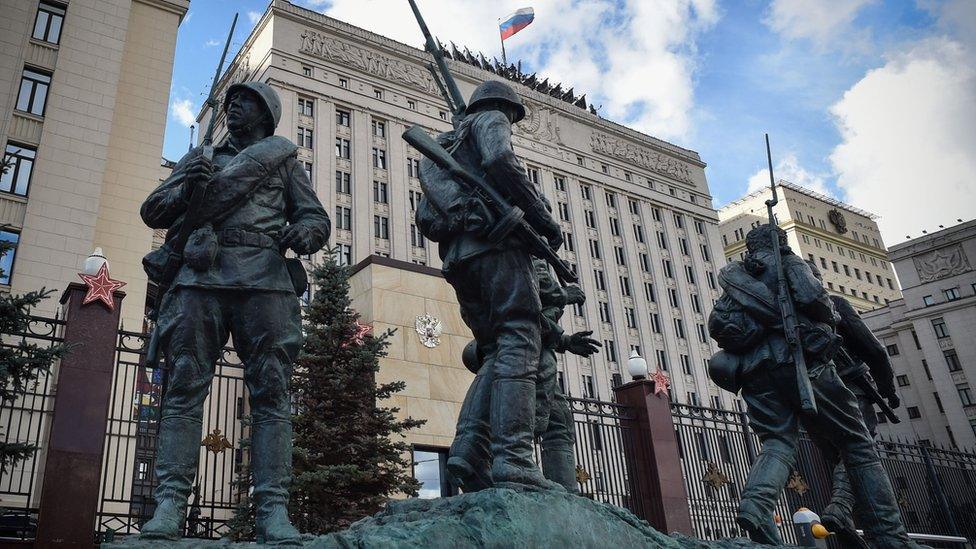
Russia's military accused Israeli pilots of acting unprofessionally or with "criminal negligence"
The defence ministry reacted angrily to the shooting down of the Il-20, putting the blame squarely upon Israel, which said its aircraft had targeted a Syrian military facility to prevent the transfer on behalf of Iran to Lebanon's Hezbollah movement of systems to manufacture weapons.
Israel insisted that its jets were back in Israeli airspace by the time the Russian aircraft was shot down and said the blame lay with the Syrian military, as well as with Iran and Hezbollah. An Israeli military delegation travelled to Russia to make the case.
President Vladimir Putin, perhaps mindful of the close relationship he has with Israeli Prime Minister Benjamin Netanyahu, meanwhile sought to calm tensions.
The storm appeared to have blown over until the Russian defence ministry released a report over the weekend accusing the Israeli pilots of acting unprofessionally or with "criminal negligence", and on Monday announced the sale of the S-300 to Syria.
So what then is the real Russian position and how much difference will the enhancements to Syria's air defence system make?
The Russian position is not entirely consistent.
For a start, Russia has a highly-sophisticated surface-to-air missile system and radars at its own airbase near Latakia. It could very easily have told the Israelis that it would now seek to use these to defend Syrian airspace. But it apparently has not.
Many in the Russian military were understandably angry at the loss of an aircraft with 15 personnel on board, and Moscow felt compelled to act.
But should the anger be directed more at ally, Syria, rather than Israel?
That kind of public condemnation is unlikely to be forthcoming.
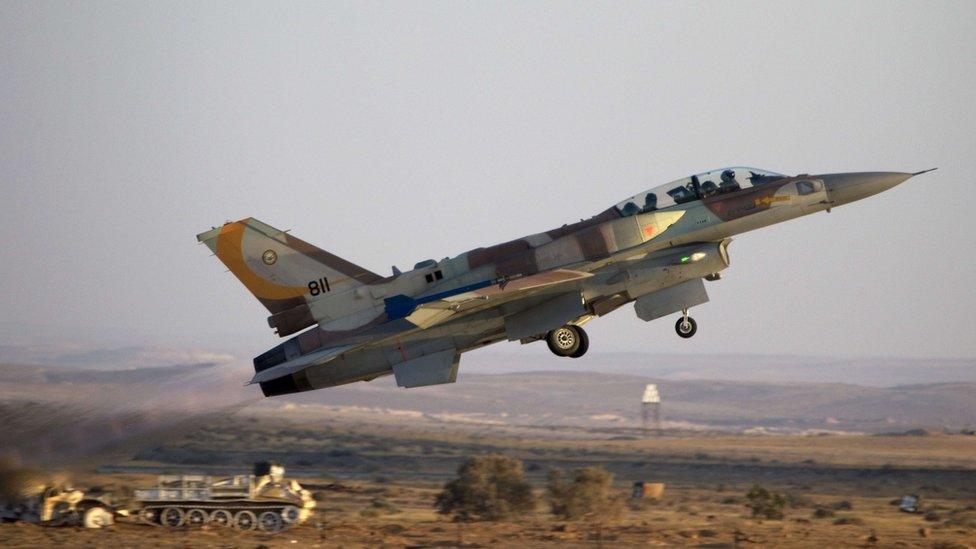
Israel has carried out air strikes in Syria to thwart shipments of Iranian weapons to Hezbollah
In striking at targets close to the Russian airbase, the Israeli Air Force appears to have crossed a Russian red line.
Israel insists that interrupting weapons shipments to Hezbollah and constraining Iran's growing influence in Syria are vital strategic goals.
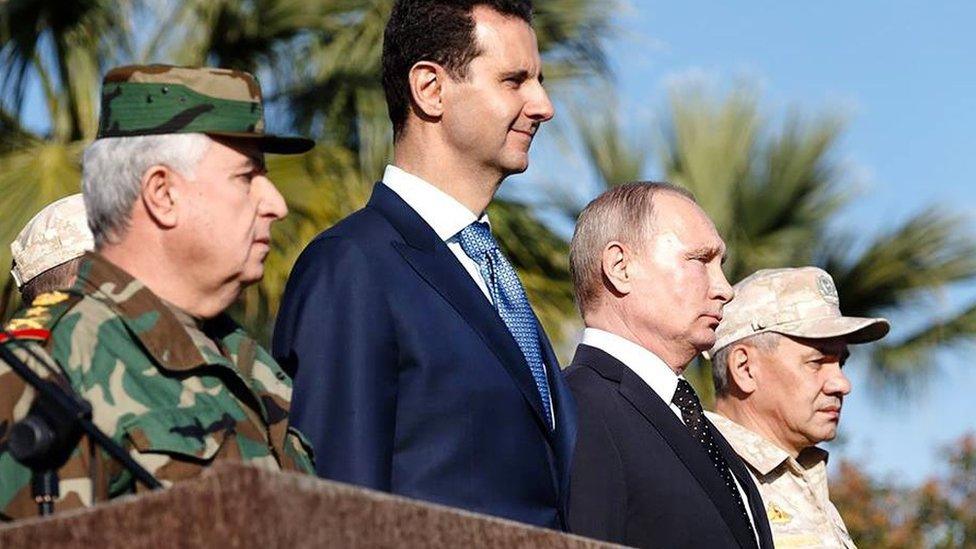
Russia launched an air campaign in support of Syrian President Bashar al-Assad in 2015
But Russia seems to be saying it is no longer willing to turn a blind eye to such operations, which it believes are weakening Syrian President Bashar al-Assad.
If this really is Moscow's intention then the Israelis are going to have to tread carefully.
There could be some very tense and bumpy moments in the coming weeks and months.
- Published24 September 2018
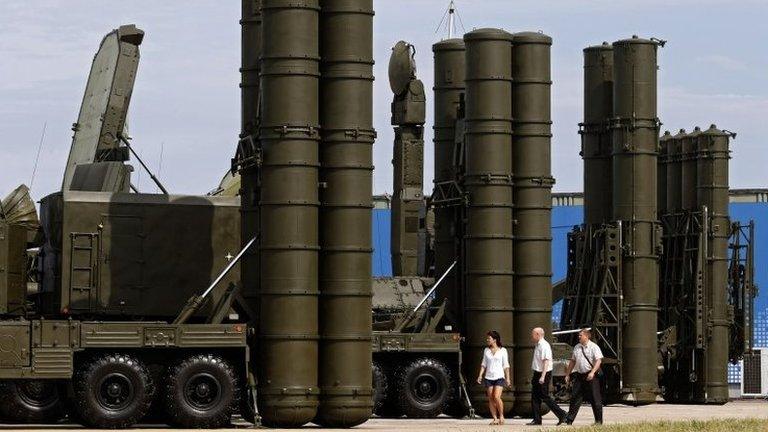
- Published18 September 2018
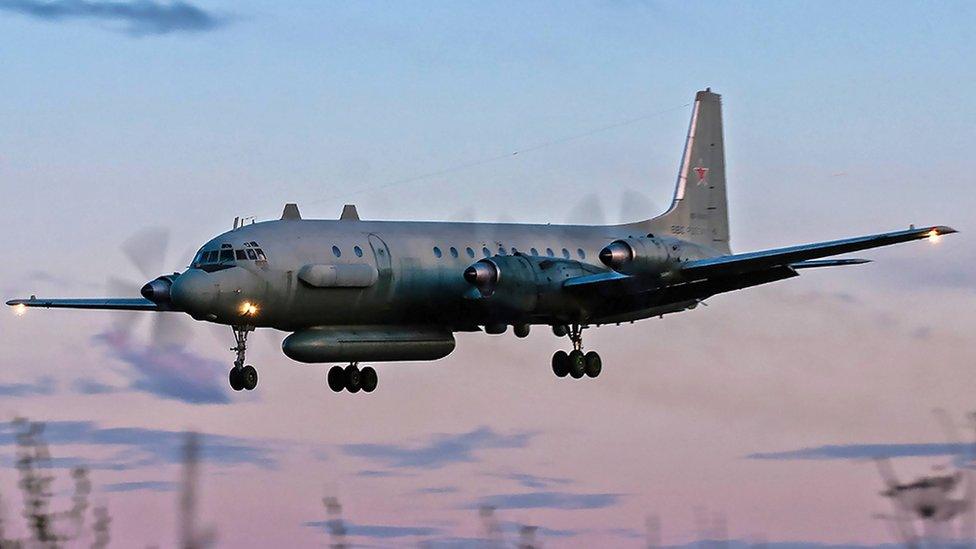
- Published18 September 2018
